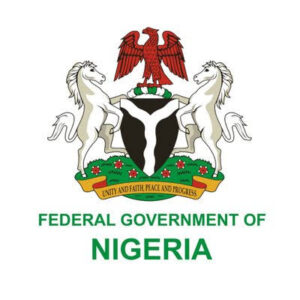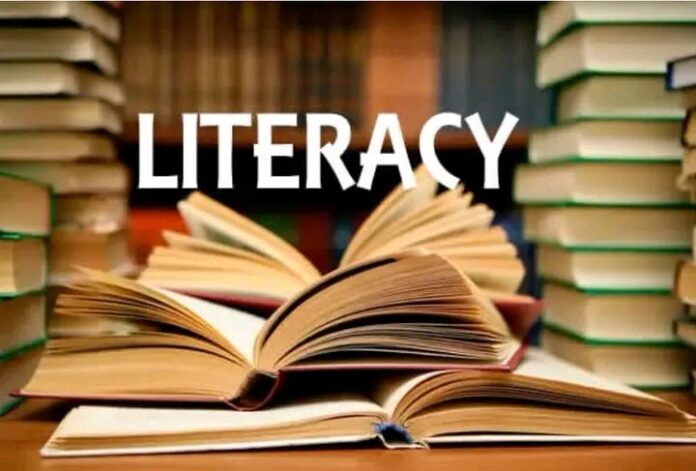The 2024 International Literacy Day has come and gone again, an opportunity for Nigeria’s leaders and educators to evaluate progress made in the education sector and strive for desirable literacy outcomes in view of the fact that literacy rate determines financial power.
It is unfortunate that today, Nigeria’s education outlook is poor due to misplaced priorities.
In Nigeria, where 31 per cent of the population is illiterate and millions of children out-of-school, this year’s Literacy Day is another wake-up call on the Federal, State and Local governments to close the literacy gap.
Using data from UNESCO, World Bank and Our World in Data, Data Pandas published the 2024 literacy rate involving 207 countries.
Incidentally, the last 10 on the list, excluding Afghanistan, are African countries and the last 20, excluding Afghanistan and Pakistan, are also African countries.
Interestingly, Nigeria is among the last 21 on the list and nine out of the top 10 countries are European countries.
Seven of them had a 100 per cent literacy rate.
They are:
1. Finland
2. Norway
3. Luxembourg
4. Andorra
5. Greenland
6. Liechtenstein and
7. Uzbekistan
The other three in the top 10, all with literacy rate above 99 per cent are:
1. Latvia
2. Estonia and
3. Lithuania
For those who erroneously think that literacy means the ability to read and write in English Language, note that none of the 10 countries I mentioned above is an English-speaking country.
It is also important to note that literacy rate is more about the capacity of people to read and write in the official language of instruction of the country in which they live.
This usually determines their ability to secure employment.
Among the African countries from the list, the top 10 African countries in terms of literacy rate are:
1. Seychelles (95.32%)
2. Equatorial Guinea (95.20%)
3. South Africa (94.60%)
4. Sao Tome and Principe (91.75%)
5. Libya (91.39%)
6. Namibia (90.82%)
7. Mauritius (90.62%)
8. Cape Verde (88.47%)
9. Botswana (88.22%)
10. Eswatini (87.47%).
*NOTE: Nigeria is ranked 35th with 59.57 per cent literacy rate.
On the latest list of ranking of countries in terms of the Human Development Index, most of the countries in the top 30 on literacy rate also feature in the top 30 of HDI, a pointer to the fact that literacy rate correlates with human development, meaning the more educated people are, the better opportunities they have in life.
Getting jobs become easier and people have more opportunities to get better-paying jobs and with access to money comes more access to the good things of life.
Today, with 18 million children in Nigeria either abandoning school or not attending school at all, how does anybody expect peace in Nigeria?
It is almost an impossibility to expect Nigeria to be at peace despite such staggering figures.
In May, this year, United Nations Children’s Fund had raised concerns over the rising cases of out-of-school children in Nigeria.
Chief of Field Office, UNICEF Bauchi Field Office, Dr Tushar Rane, said 10.2 million primary school-age children and 8.1 million children at junior secondary level were out of school in the country.
Another report by UNICEF on Nigeria’s out-of-school children last year, broke it down according to the six zones of Nigeria:
1. North-West has a total of 8,044,800 out-of-school children;
2. North-East has 5,064,400;
3. North-Central has 2,115,800;
4. South-West has 1,146,900;
5. South-South has 431,300; and
6. South-East has 240,200 out-of-school children.
One can easily see a nexus between a low literacy rate and high poverty rate.
While Nigeria has the highest number of out-of-school children globally, it also has the highest number of poor people in the world.
With the latest ranking of Nigeria as the third debtor in the world, one can expect what will happen in a few days from now with the unending increment in the pump price of petrol which now goes for between N1000 and N1,500 per litre.
For Nigeria to move up in the Human Development Index, its overall literacy rate must improve hugely.
Additionally, the educational disparity between the South and the North has to be addressed and bridged.
As long as all parts of the country don’t have literacy rates that are above 75 per cent, the well-being of Nigeria as a whole will be negatively affected.
Nigeria needs serious solutions to its human capital problem, starting with addressing basic literacy.
More emphasis on primary and secondary education, because low literacy rates and substandard education are at the root of many of the issues Nigeria faces.
There needs to be an adult literacy campaign.
Given the high level of religious adherence in the country, religious institutions can be enlisted to support efforts to help adult Nigerians improve their literacy.
Nigeria needs to embrace IQ and cognitive testing as a tool for educational development.
An aggressive campaign for education and reorientation is something the government must embrace fully.




